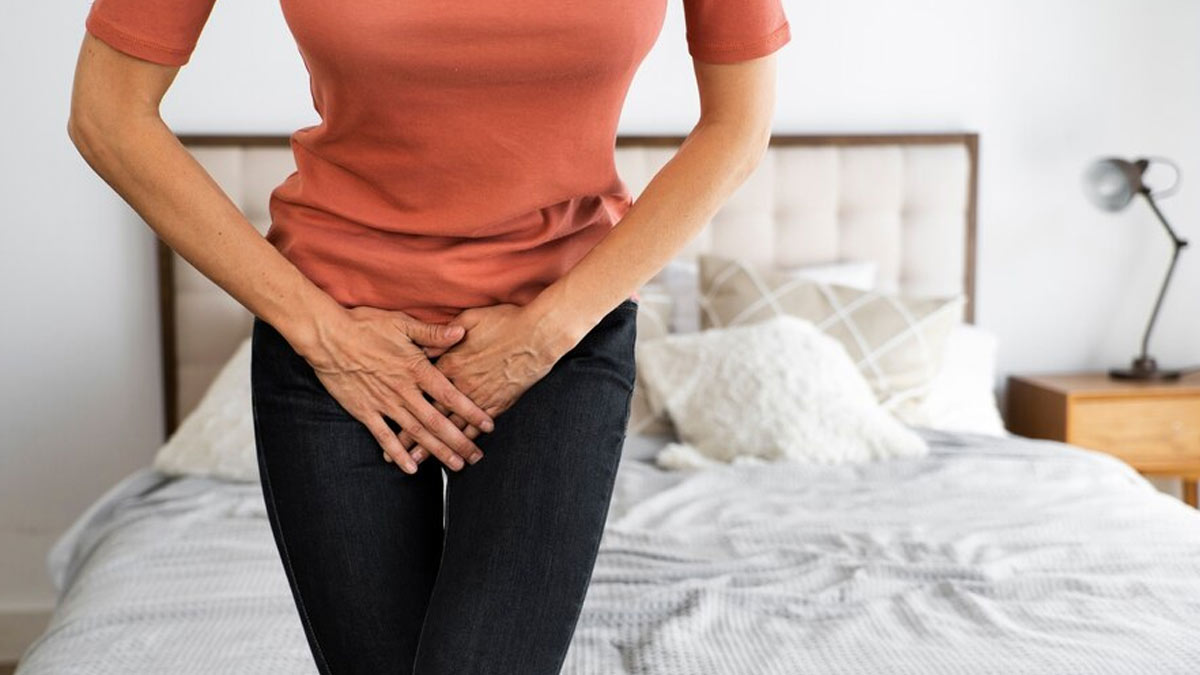
Most women may get a vaginal infection at some point in their lives. These infections can be uncomfortable, irritating, and at times, downright painful. It can be caused due to various factors, such as yeast infections and bacterial infections, leading to abnormal vaginal discharge, burning and odour. We spoke to our expert Dr Karthika Reddy Byreddy, Consultant Obstetrician and Gynaecologist, Yashoda Hospitals, Hyderabad, who listed tips to prevent vaginal infection from getting worse.
Table of Content:-

According to the Multidisciplinary Digital Publishing Institute (MDPI), vaginal yeast infections, also known as yeast vaginitis or vulvovaginal candidiasis, manifest with symptoms, such as white vaginal discharge, localised itching, burning sensations, soreness, and discomfort during sexual intercourse and urination.
According to the Institute for Quality and Efficiency in Health Care (IQWiG), common indicators of a vaginal yeast infection include itching, discomfort characterised by a burning sensation, and pain. The vaginal membranes may appear red and exhibit a whitish coating. Symptoms might intensify in the days leading up to menstruation. If the inflammation extends to the external genital area, the labia may also become red and swollen.
Also Read: How To Prevent Vaginal Infection During Monsoons? Doctor Answers
Tips To Follow To Avoid Worsening Of Vaginal Infections
Choose Breathable Fabrics
You should avoid tight-fitting undergarments and clothes, as they can lead to a warm and moist environment that allows the infection to overgrow. Instead, opt for breathable cotton underwear and loose-fitting clothing to promote airflow and reduce moisture around the vaginal area.

Avoid Douching
“You should avoid douching as it removes the healthy bacteria that protect you from infection. The chemicals in douches will upset the PH balance in the vagina, leading to an overgrowth of anaerobic bacteria. The vagina is a self-cleaning organ, so douches are unnecessary to do”, highlighted Dr Byreddy.
Avoid Irritants
You should not use products that contain scented ingredients, such as bubble baths, pads, and tampons, which can disrupt the healthy balance of bacteria in the vaginal area. Hence, look for unscented, hypoallergenic products to minimise irritation and inflammation.
Limit Antibiotic Use
Dr Byreddy added, “Avoid unnecessary usage of antibiotics as they change the normal balance of vaginal organisms. Also, always take antibiotics as prescribed by your healthcare provider, and if possible, discuss probiotic supplements to help maintain a healthy vaginal microbiome.”
Practice Safe Sex
Unprotected sexual activity can introduce harmful bacteria or Sexually Transmitted Infections (STIs) into the vagina, increasing the risk of developing or worsening a vaginal infection. Use condoms consistently and correctly, and consider limiting sexual partners to reduce the risk of infection transmission.
According to the Journal of Medicine and Life, 53% of women experiencing vaginal infections also report sexual dysfunction. Recent research indicates a prevalence of vaginal infections among reproductive-aged children ranging from 13.4-21%.
Practise Good Hygiene
You should maintain personal hygiene to worsen vaginal infections. Don't sit in wet clothes, such as swimsuits and workout gear for an extended period. Also, avoid undergarments made of nylon that trap moisture, instead use breathable fabric like cotton.
Apart from this, always wipe from front to back after using the bathroom to avoid transferring bacteria from the anus to the vagina. Also, wash the genital area with mild, unscented soap and water.
[Disclaimer: This article contains information provided by an expert and is for informational purposes only. Hence, we advise you to consult your expert if you face any health issues to get the necessary treatment.]
Also watch this video
How we keep this article up to date:
We work with experts and keep a close eye on the latest in health and wellness. Whenever there is a new research or helpful information, we update our articles with accurate and useful advice.
Current Version